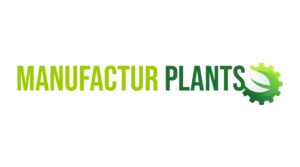In recent years, the integration of artificial intelligence (AI) in manufacturing has revolutionized the way factories operate. From predictive maintenance to quality control, AI has the potential to streamline processes, increase efficiency, and reduce costs in the manufacturing industry. Let’s delve into the impact of AI in manufacturing and how it is transforming factories for the better.
AI Enhancing Production Efficiency
One of the key benefits of using AI in manufacturing is its ability to enhance production efficiency. By analyzing large datasets in real-time, AI-powered systems can identify inefficiencies in the production process and suggest improvements. For example, AI algorithms can optimize production schedules, minimize downtime, and improve overall equipment effectiveness (OEE). This results in higher productivity, lower operating costs, and improved product quality.
Predictive Maintenance with AI
Another significant advantage of AI in manufacturing is predictive maintenance. Traditional maintenance practices are often based on fixed schedules or reactive maintenance, which can lead to unexpected downtime and costly repairs. AI-driven predictive maintenance, on the other hand, uses machine learning algorithms to analyze equipment data and predict when maintenance is needed before a breakdown occurs. This proactive approach helps manufacturers avoid unplanned downtime, reduce maintenance costs, and extend the lifespan of their assets.
Quality Control and AI
Quality control is another area where AI is making a big impact in manufacturing. AI-powered systems can analyze images, sensor data, and other sources of information to detect defects and anomalies in real-time. This helps manufacturers identify quality issues early in the production process, leading to improved product quality and reduced waste. AI can also optimize inspection processes, reduce the need for manual intervention, and ensure consistency in product quality.
Workforce Augmentation through AI
Contrary to popular belief, AI in manufacturing is not about replacing human workers but augmenting their capabilities. AI-powered systems can handle repetitive, mundane tasks, allowing human workers to focus on more complex and creative aspects of their jobs. By collaborating with AI, workers can increase their productivity, make better decisions, and drive innovation in the manufacturing industry.
AI and Supply Chain Optimization
Supply chain management is a critical aspect of manufacturing, and AI is playing a crucial role in optimizing supply chain operations. AI algorithms can analyze supply chain data, anticipate demand fluctuations, and optimize inventory levels to ensure smooth production and delivery processes. By leveraging AI in supply chain management, manufacturers can reduce lead times, improve customer satisfaction, and achieve greater operational efficiency.
In conclusion, the integration of AI in manufacturing is transforming factories for the better by enhancing production efficiency, enabling predictive maintenance, improving quality control, augmenting the workforce, and optimizing supply chain operations. As AI continues to evolve and mature, its impact on the manufacturing industry is only set to grow. Manufacturers that embrace AI technologies stand to gain a competitive edge in today’s rapidly changing market landscape.
Are you ready to unlock the full potential of AI in your manufacturing operations?
With the rapid advancements in AI technology, now is the perfect time to explore how AI can help transform your factories for the better. By leveraging AI-driven solutions, manufacturers can drive innovation, reduce costs, and improve overall operational efficiency. Embrace the future of manufacturing with AI today!
Discover how AI is revolutionizing the manufacturing industry and transforming factories for the better. Unlock the potential of AI in your operations now!
By incorporating AI technologies into manufacturing processes, companies can gain a competitive advantage, reduce costs, improve quality, and optimize their supply chain. Are you ready to harness the power of AI in manufacturing and take your operations to the next level?
